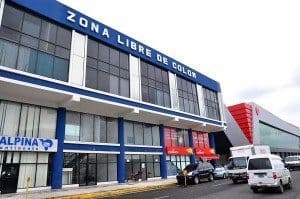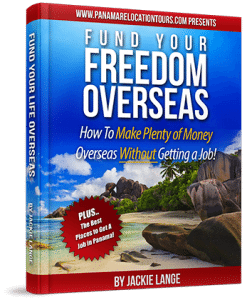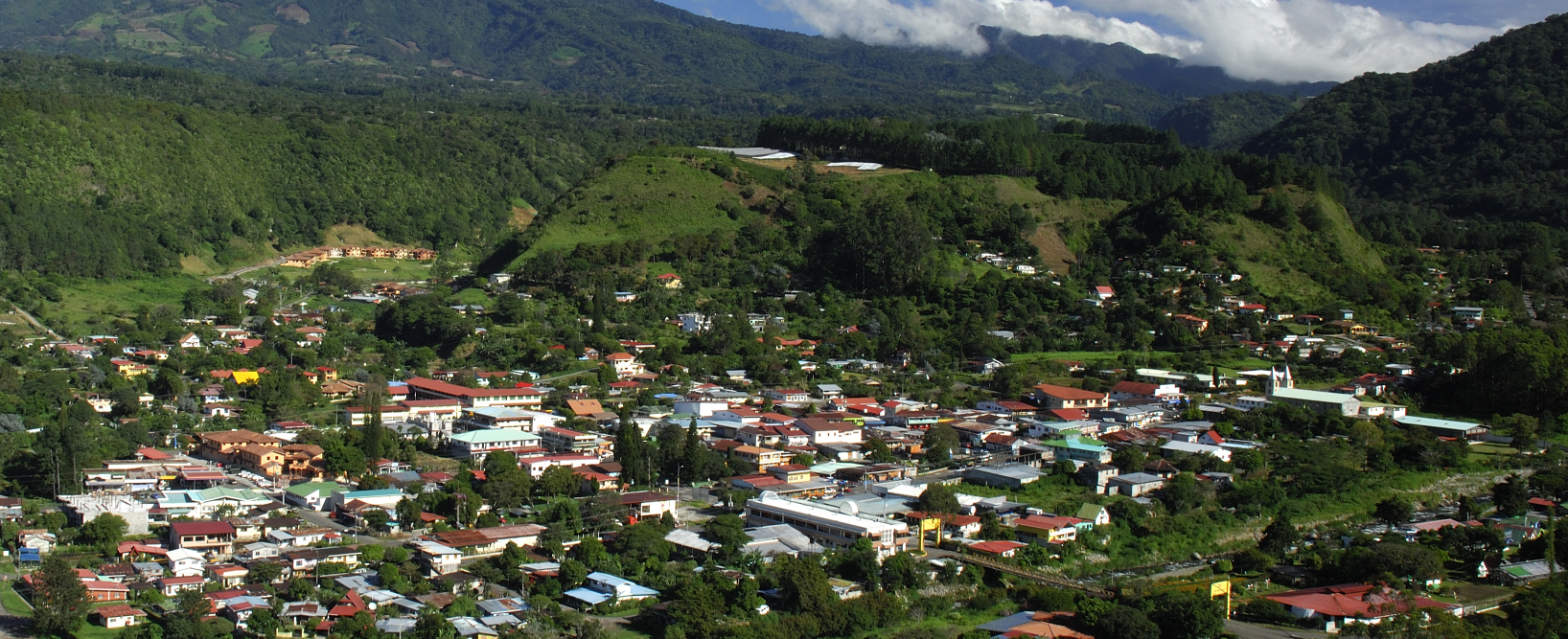
Many people need to continue working to support their lifestyle when they move to Panama. They may not have a pension, a social security check, or a stash of cash to rely on every month. There are more young singles and young families with children moving to Panama, and they need to find a way to make money while living in Panama.
Even if you do have a pension or social security, some expats prefer to continue working to stay busy and to supplement their retirement income.
Either way, there are rules for working in Panama.
To legally work in Panama, you need a WORK PERMIT (Permiso de Trabajo). Employers will not hire you unless you have a work permit. Foreigners cannot sell any product or service in Panama unless they have a work permit.
You cannot get a work permit without also getting a Visa. But only certain visas include a work permit. The Friendly Nations Visa, Business Visa, or Professional Visa all include a work permit. There are a few other SEM work permit visas that are only available for employees of multinational companies. Once you get the Friendly Nations Visa, you can get a 3-year work permit, which can be renewed. Many of the other Visas have a work permit that must be renewed every couple of years. It is very easy to obtain a work permit once you have the appropriate Visa.
You can apply for a work permit if you have a Pensionado Visa, but there is a 50/50 chance your request will be denied unless you can prove why you cannot support yourself with your pension. A Pensionado visa is intended for those who have moved to Panama to be retired.
You cannot sell any products or services in Panama unless you have a work permit… not even at the local markets.
Without a work permit, you will find it extremely difficult to get a job. Your employer could even face fines if the Panamanian government discovers that they hired or allowed someone to work at their business without a valid work permit.
Just because you have a work permit, you may not be able to do the kind of job you want or a job that pays enough. Some professions are protected only for Panamanians, such as doctors, lawyers, counselors, engineers, accountants, or architects. You will need to consult with your immigration attorney to see if your profession is protected. You may be able to offer your services online. Consult with your Panamanian immigration attorney for guidance.
To compound the problem of finding work in Panama, most companies cannot hire more than 10% foreign workers unless they are a registered multinational company. And, most jobs in Panama have very low pay compared to North America or Europe. Some multinational companies pay the equivalent of North American wages, but not all.

THE EASIER WAY….
You may find that it is easier to start your own company than to get a job. But even when you start your own company, you will still need a work permit to work in your company legally. The solution is to start an online business that sells outside of Panama; then you do not need a work permit.
There are so many opportunities!
Some expats, and Panamanians, do freelance work. They sell their services to the world through websites like Upwork.com, Freelancer.com, or Fiverr.com. Explore the jobs people have posted to discover the opportunities. If you are a freelancer living in Panama, you do NOT need to get a work permit.
If you sell products on Amazon, you do not need a work permit in Panama.
You can get more ideas in my free booklet, Fund Your Freedom Overseas, available below.
SPECIAL OPPORTUNITY…

For those who have ever considered starting an export business, Panama has what may be the best place to operate from—the Colon Free Zone. In this special zone, you can reap tax and financial benefits that are unrivaled anywhere else on the planet. Plus, you can gain easy, cost-effective access to a market of more than 500 million consumers in Latin America and the Caribbean.
The Colon Free Zone, located in the City of Colon, near the Atlantic entrance to the Panama Canal, is the second-largest duty-free zone in the world—second only to Hong Kong.
Since its inception in 1948, it has grown from a mere 120 acres to over 1,000 acres, is home to more than 2,000 companies from across the globe, and employs over 14,000 people. In January 2018, imports in this free zone registered a total of $775,522,000, while exports were about $ 943,164,000. Revenue continues to rise every year.
The Colon Free Zone offers free movement of goods and complete exemption from tax on imports and re-exports. There are no taxes on the export of capital or the payment of dividends. In addition, there are reduced income tax rates on earnings from re-export sales. Furthermore, firms located in the CFZ are exempt from import duties as well as from guarantees, licensing, and other requirements and limitations on imports. Due to its geographic location, the CFZ is a significant factor in channeling goods from large industrialized countries to consumer markets in Latin America.
One time, when I was flying to Florida, I sat next to a man who owns three stores in the Colon Free Zone. He said he was making money so fast he was on his way to Miami to buy a couple of apartment buildings for $5 million.
If you’re interested in getting information about starting an import-export business in the Colon Free Zone, contact your immigration attorney.
There are many ways to make money in Panama, but most require a work permit and the appropriate Visa. Stay legal. As expats, we are guests in Panama and need to set good examples by following the rules. Some expats have been deported for breaking the rules. You sure don’t want that to happen to you.
FREE BOOK
Get my FREE booklet, Fund Your Freedom Overseas….
> > > > > GET YOUR FREE BOOK HERE < < < < <
This free book will give you ideas of things you can do in Panama to make a little (or a lot) of extra income. It also has information on where to apply for a job in Panama, if the entrepreneurial lifestyle is not for you.
ADVICE FOR GETTING A JOB IN PANAMA…
The following is advice from Joel Thomas, a 32-year-old who came on a Panama Relocation Tour in 2014 and was successful at getting a job in Panama with a six-figure salary.
1. Know yourself and know the industry you want to work for. Once you have the industry (macro) start researching companies in Panamá. These multinationals are a good start if you ….
a. Don’t have a visa or work permit as they offer SEM visa and
b. do not have Spanish fluency
Other resources to find opportunities and job openings are LinkedIn.com , https://www.konzerta.com/ for private sector, and
https://ciudaddelsaber.org/en/community-opportunities-job-openings for multinational companies
2. Be proactive. Call ahead and email ahead to speak with HR. If you are a consultant or know a way to add value, do not be shy. A quick call and setting up a meeting to propose how you can offer value can be easier than you think if you articulate your value proposition. A German friend of mine wanted to connect German private and institutional investors with real estate developers in Panama. He was very succinct in his emails and value proposition. He was able to set up meetings rather quickly with decision makers at large real estate development firms before coming to Panama.
3. It’s not what you know, it’s who you know. Panama is small, and knowing someone inside the company can offer insight into new positions being offered first internally and then externally. Many multinationals prioritize internal hires, so get a head start on the job leads with the people that matter most. Networking, especially with HR representatives or managers, pays dividends as they often hold the most influence in new hires. This usually requires coming to Panama, which is strongly recommended to make sure Panama is the right cultural fit for you anyway. After touring Panama, I chose to build my network of managers and executives and continue my professional development through a top 15 US MBA program offered at 1/3 of the cost with the same professors, accreditation, and instruction, but more flexibility in the exciting emerging market of Panama.
THE SOLUTION… WORK ONLINE

No matter which country you decide to move to, they will usually require some kind of work permit and/or visa to work their or run a business in the country legally. These rules are not unique to Panama.
Only if you sell a product or service or work in Panama do you need a work permit. That’s one reason an online business is so attractive. With an online business, you won’t need a work permit. Plus, it is a portable business that you can run from anywhere.
If you live in Panama but are not selling a product or service in Panama, you would not need a work permit. If you live in Panama and work online selling products or services to people in other countries, you would not need a work permit in Panama.
With an online business, work doesn’t feel like WORK when you are relaxing on the beach or enjoying the tropical mountain weather from your back patio in Panama.
Before applying for a Visa, it is best to discuss with your immigration attorney what your plans are for working in Panama. Your attorney can give you advice about the best visa for your personal situation.
It is not possible to switch from a Pensionado Visa to a different Visa that has a work permit. You would have to renounce your Pensionado visa, then apply all over again for the new Visa. You would not be able to get credit for any money paid for the Pensionado Visa. If you plan to work or start a business in Panama someday, it is best to obtain the appropriate Visa that includes a work permit.




